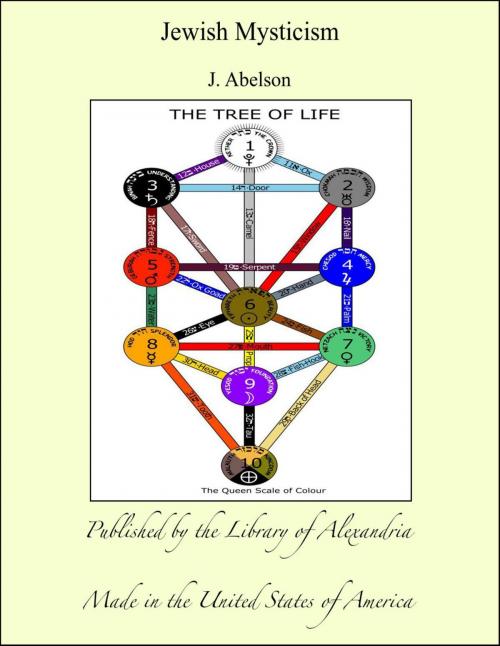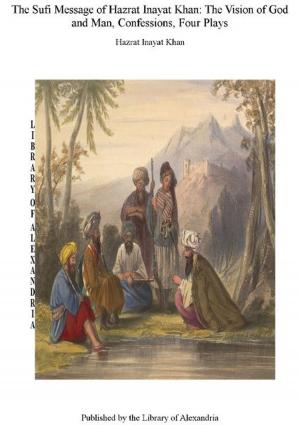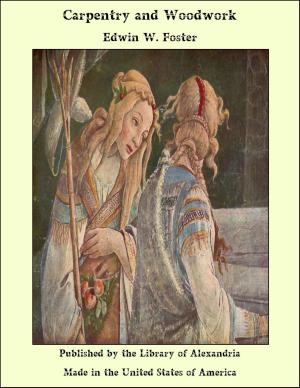| Author: | J. Abelson | ISBN: | 9781465576439 |
| Publisher: | Library of Alexandria | Publication: | March 8, 2015 |
| Imprint: | Language: | English |
| Author: | J. Abelson |
| ISBN: | 9781465576439 |
| Publisher: | Library of Alexandria |
| Publication: | March 8, 2015 |
| Imprint: | |
| Language: | English |
GENERAL and special studies on Christian mysticism are numerous enough; but it is somewhat remarkable that, in their introductory pages, authors, who have much to say of Plotinus and Neoplatonism, have nothing or very little on the still more cognate subject of Jewish mysticism. This is not, however, so very surprising, for, truth to tell, there is a singular dearth of anything like an adequate introduction to the study of Jewish mysticism itself. The impression left with the general reader is that there is little of a mystical nature in the legitimate tradition of Jewish religion, and that the Kabbalah is simply a morbid and late growth, fed entirely by elements foreign to the genius of Israel. How ill-founded is the former view, and how extreme the latter, may be seen in the following pages. In an able summary, that may well serve as an introduction to the general study of Jewish mysticism, Dr. Abelson makes accessible to the general reader, in simple terms, the results of his careful inquiry, based on the researches of the best Jewish scholars, and reinforced by his own wide acquaintance with Talmudic and Rabbinical literature. To write profitably on Jewish mysticism, it is necessary to have, not only a discriminating sympathy with the mystical standpoint, but also a first-hand knowledge of Jewish religious literature, the peculiar genius of which, perhaps, no one but a member of the race that has produced it can adequately appreciate and interpret. In addition to this, Dr. Abelson comes well prepared for his task, as he has already opened up a new field of research by his valuable critical study on The Immanence of God in Rabbinical Literature, a subject which is the indispensable presupposition of all Jewish mysticism.
GENERAL and special studies on Christian mysticism are numerous enough; but it is somewhat remarkable that, in their introductory pages, authors, who have much to say of Plotinus and Neoplatonism, have nothing or very little on the still more cognate subject of Jewish mysticism. This is not, however, so very surprising, for, truth to tell, there is a singular dearth of anything like an adequate introduction to the study of Jewish mysticism itself. The impression left with the general reader is that there is little of a mystical nature in the legitimate tradition of Jewish religion, and that the Kabbalah is simply a morbid and late growth, fed entirely by elements foreign to the genius of Israel. How ill-founded is the former view, and how extreme the latter, may be seen in the following pages. In an able summary, that may well serve as an introduction to the general study of Jewish mysticism, Dr. Abelson makes accessible to the general reader, in simple terms, the results of his careful inquiry, based on the researches of the best Jewish scholars, and reinforced by his own wide acquaintance with Talmudic and Rabbinical literature. To write profitably on Jewish mysticism, it is necessary to have, not only a discriminating sympathy with the mystical standpoint, but also a first-hand knowledge of Jewish religious literature, the peculiar genius of which, perhaps, no one but a member of the race that has produced it can adequately appreciate and interpret. In addition to this, Dr. Abelson comes well prepared for his task, as he has already opened up a new field of research by his valuable critical study on The Immanence of God in Rabbinical Literature, a subject which is the indispensable presupposition of all Jewish mysticism.















